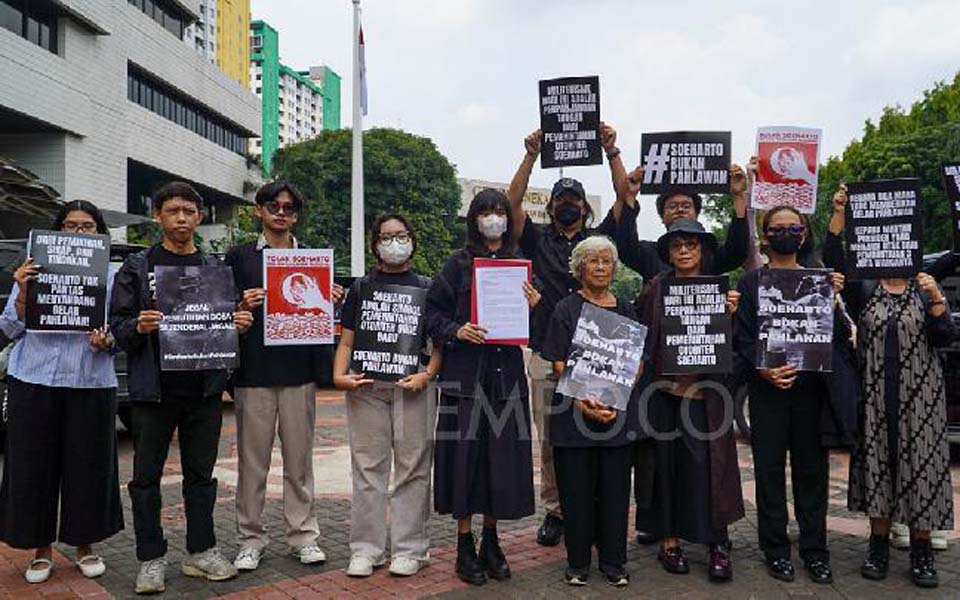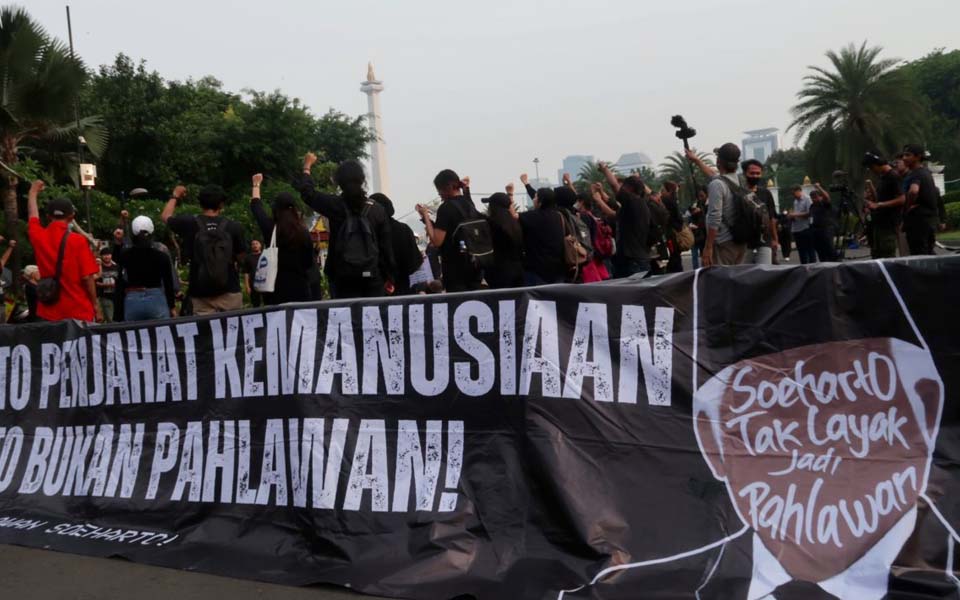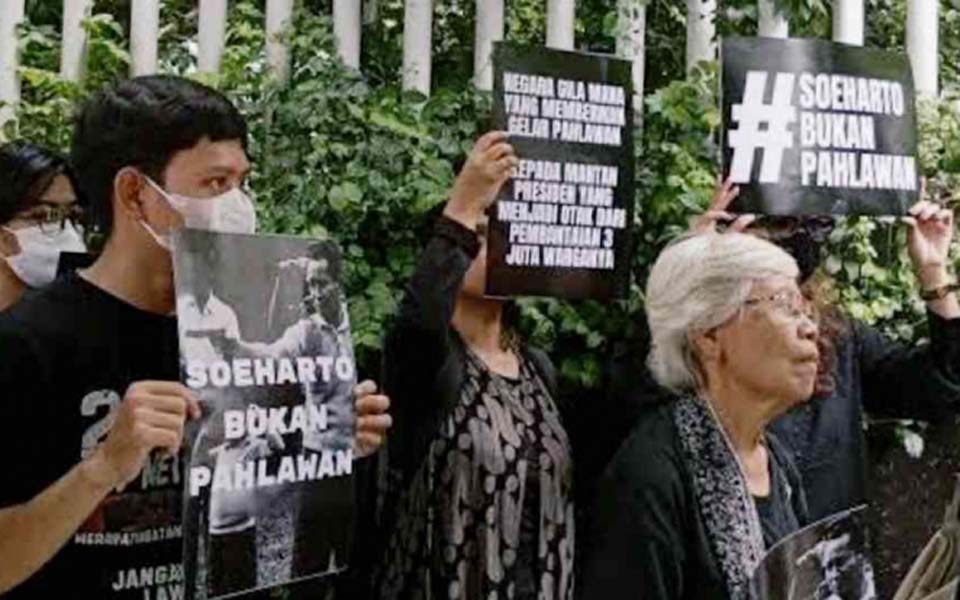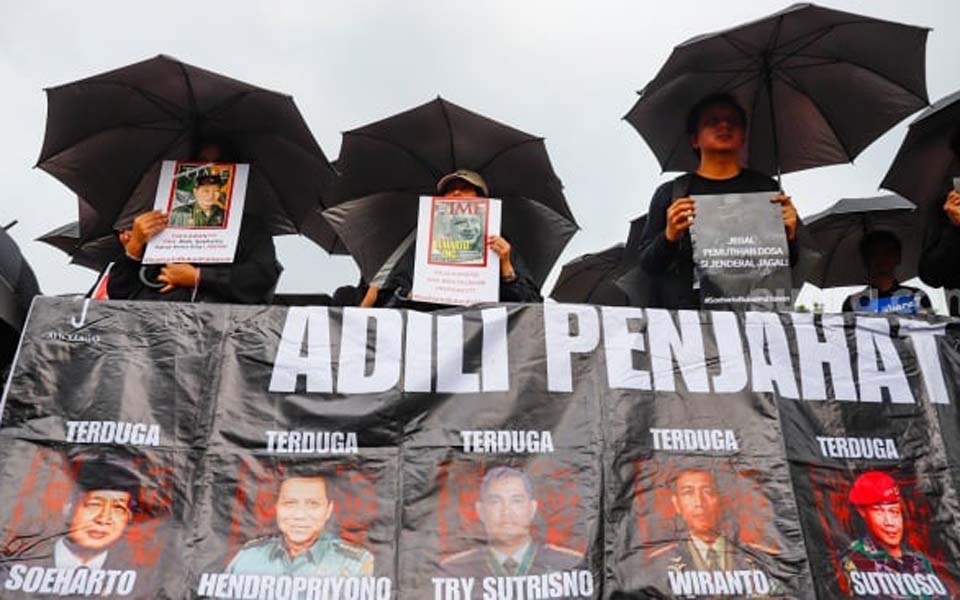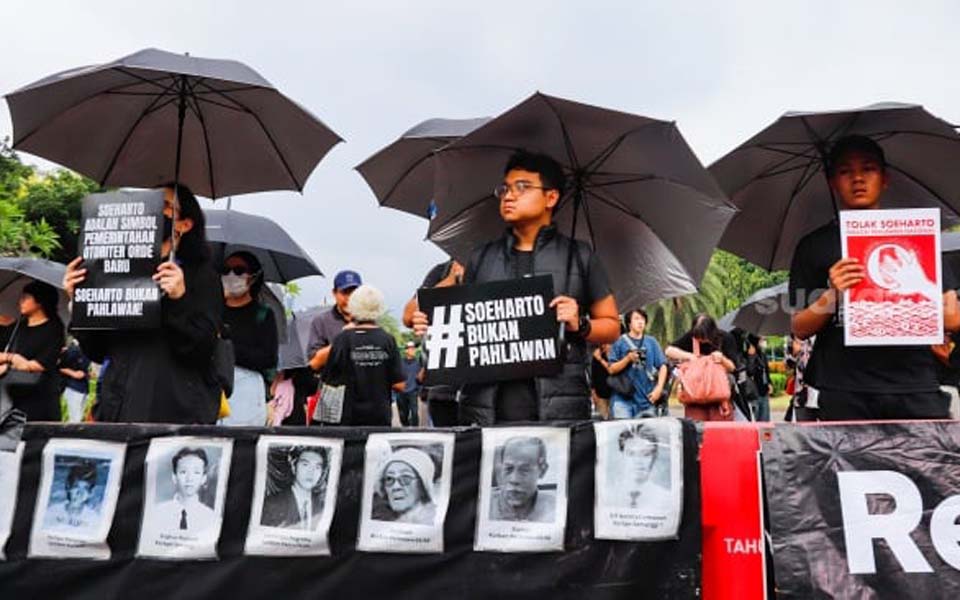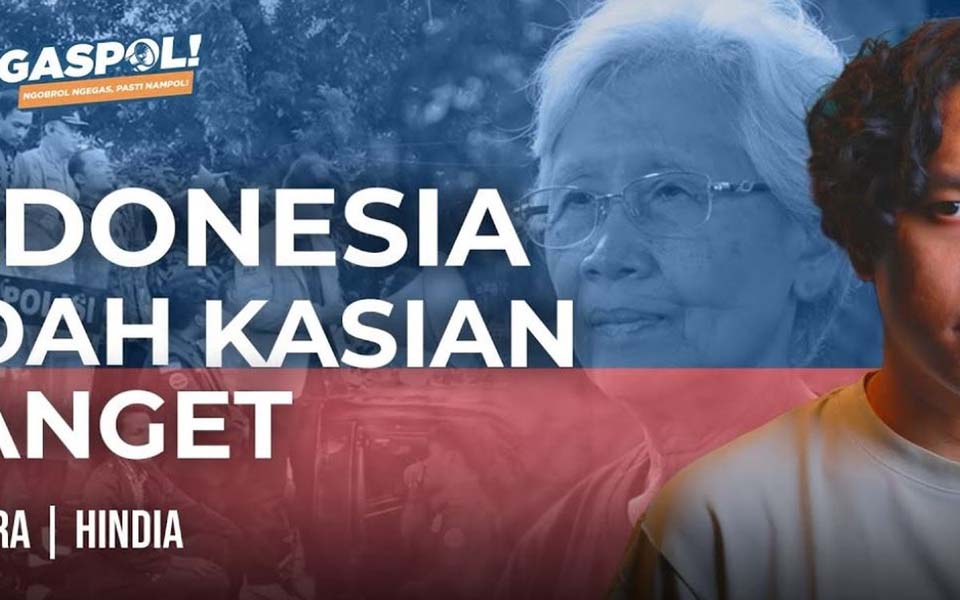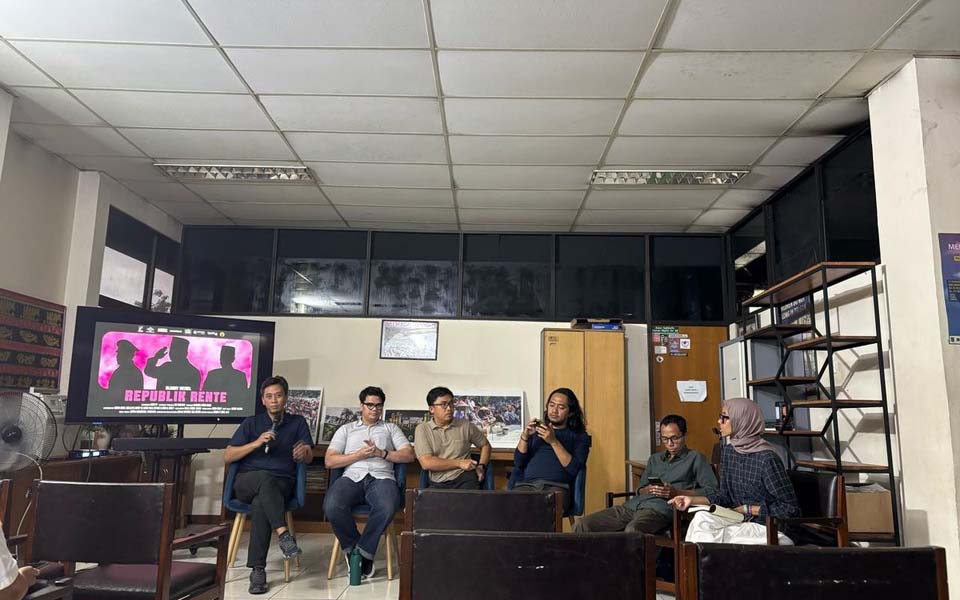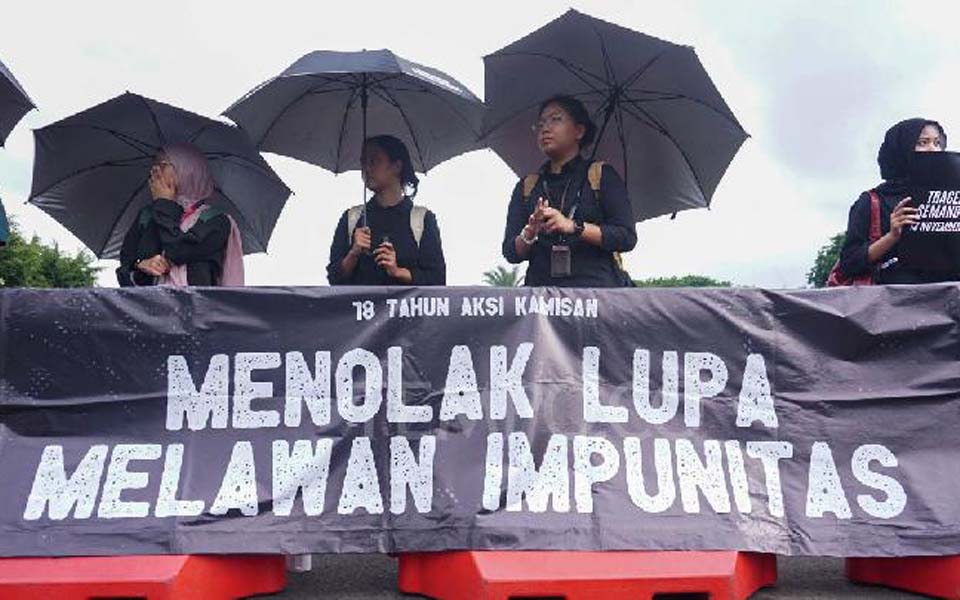Jakarta – As well as having the potential to violate human rights, the revisions being made to Law Number 15/2003 on Eliminating Criminal Acts of Terrorism which are being considered by the Department of Law and Human Rights are far more repressive and are a step backwards in terms of efforts to respect and uphold values of human rights in Indonesia.
This was the view expressed separately by two legal practitioners, Todung Mulya Lubis and Mohammad Assegaf on Monday November 1, in response to the revisions being made to the law.
Lubis said that although terrorism represents an extraordinary crime which must be combated, this does not mean that in revising the anti-terrorist law it should negate the indications or symbols which are linked to terrorism such as the difference between assisting and actually carrying out acts of terrorism or being an intellectual actor in terrorism.
“This is a fundamental violation against human rights. Essentially, merely on the basis of a suspicion there are grounds to arrest and investigate a person. This revision is extraordinary because it is far more repressive compared to the previously existing law”, he explained.
In terms of human rights, Lubis believes the revisions to the anti-terrorist law are truly a step backwards because what should have been done, with the Constitutional Court’s decision to annul Law Number 16/2003 on the Enactment of Government Regulation Number 2/2003 in the Bali bombings case, was for the government and the People’s Representative Assembly (DPR) to have been more careful in conducting the revisions. “The revisions should have further prioritised human rights, not the reverse”, he said.
Lubis explained that it may be that these revisions were being made because of the trauma of seeing the many bombings which have occurred in different places which have caused so many casualties while at the same time the perpetrators have yet to be arrested. The revisions to the law may also be intended to demonstrate to the international community that Indonesia is serious about the war against terrorism.
In fact what should be done by the government is to improve the institutional capacity of the police force and the State Intelligence Agency. “Don’t let the institutional weaknesses be compensated for by formulating a repressive law”, he said.
To the DPR and government, Lubis said that while the war against terrorism is of course necessary it must be subordinate to human rights. These revisions therefore must be reviewed and not be allowed to pass into law. The general public must be given an opportunity to participate in the deliberations over the revisions to the legislation.
Imitating Malaysia
Assegaf also says that the revisions are a step back and that the government should be struggling to uphold human rights not the reverse by giving a licence to security forces to violate human rights.
“We have consistently criticised the Internal State Security Law in Malaysia and Singapore and believe these laws violate human rights, why all of a sudden then is Indonesia now following suit. What’s behind all this?”, he asked.
According to Assegaf, Law Number 15/2003 is still creating a controversy because the law needs to be improved, particularly with regard to protecting human rights. During its revision however, it has instead created the potential for human rights violations. Moreover, the revision gives a licence to the security forces to arrests a person for an unspecified period of time. “[That is] what I really don’t understand. For example, I am a member of an organisations which has done nothing, [yet] I can be arrested. That’s just not right”, said Assegaf. (son)
[Translated by James Balowski.]






